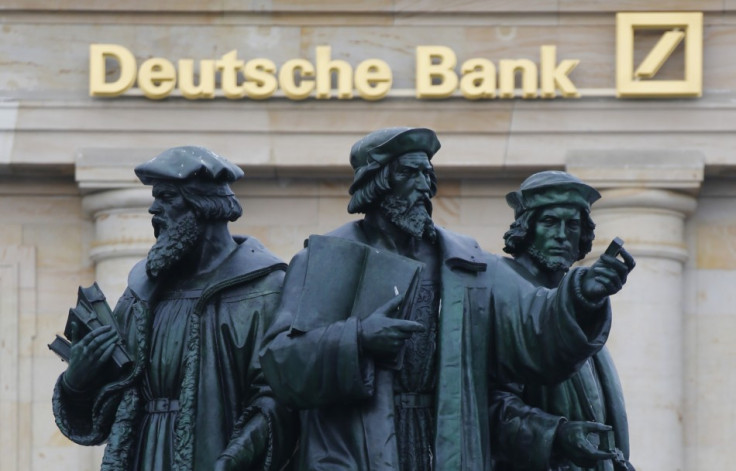Deutsche Bank and HSBC Oppose Saudi Telecom’s $1.2bn Loan Restructuring Call

Deutsche Bank, HSBC and China Development Bank are opposing Saudi Telecom's call to restructure a loan as they fear it will lead to hundreds of millions of dollars in losses.
The Islamic loan, totalling more than $1.2bn (£774m, €901m), was taken out by STC's Indonesian arm, Axis Telekom, and backed by the parent company in 2011.
According to unnamed sources cited by Reuters, the raft of lenders are concerned that STC's proposed restructuring will lead to $600m in losses.
Axis Telekom, which is 84% owned by STC, has recently reported poor results from its operations and by default is breaching some of the covenants of its loan terms. The dire financial results have naturally led to calls for a loan restructuring.
STC asked the banks to restructure the debt to reflect its correct value between $600m to $800m, say Reuters' sources.
The lenders, led by Deutsche Bank, have reportedly refused the deal and are looking for alternative ways to recover the money.
The spat with the lenders is likely to complicate STC's plan to sell the non-performing Axis business to its rival PT XL Axiata. The company requires approval from the creditor banks to complete the transaction.
"On the one hand, you have a big exposure that you cannot let go and on the other side, you have to be careful of your business relationships in the kingdom," said a Dubai-based banker to Reuters.
STC has already revealed that it is in negotiations to sell its stake in Axis Telekom that it bought in 2007 because of its poor financial performance.
"This negative impact from some of the international operations is not expected to continue as STC investments in Asia had been written down to its fair value, and currently we are looking into rationalisation of STC international portfolio," said Abdulaziz Al Sugair, managing director and chairman of STC Group.
However, sources say that STC and Axiata are yet to agree on the valuation for Axis. STC is looking to generate between $800m and $1bn from the sales, while Axiata wants to buy the STC arm for $500m to $600m.
The Tussle
According to Reuter's unnamed sources, China Development Bank has about $350m exposure to the Axis loan while HSBC and Deutsche have around $250m each. Other banks involved in the loan include Citigroup that has an exposure less than $100m.
The loan includes a $450m sharia-compliant murabaha facility arranged by Deutsche Bank and HSBC and is underwritten by Deutsche Bank and HSBC's Saudi affiliate. A murabaha is a cost-plus-profit arrangement under Islamic banking.
The tussle began at the point when STC's new management asked the banks to restructure the loans three months ago.
Amid rising tensions, STC's CEO and heads of its international and domestic operations stepped down from the company.
The banks resisted the call as even a 10% trimming could result in losses of about $25m each for both HSBC and Deutsche. The amount almost equals the fees that the banks generated in the Middle East region in the first half.
Deutsche earned about $27.4m in fees from Middle East in the first half, followed by HSBC with $24.4m, according Thomson Reuters data.
Under the terms of the loan agreement, the banks can pursue legal options outside Saudi Arabia if necessary.
© Copyright IBTimes 2024. All rights reserved.





